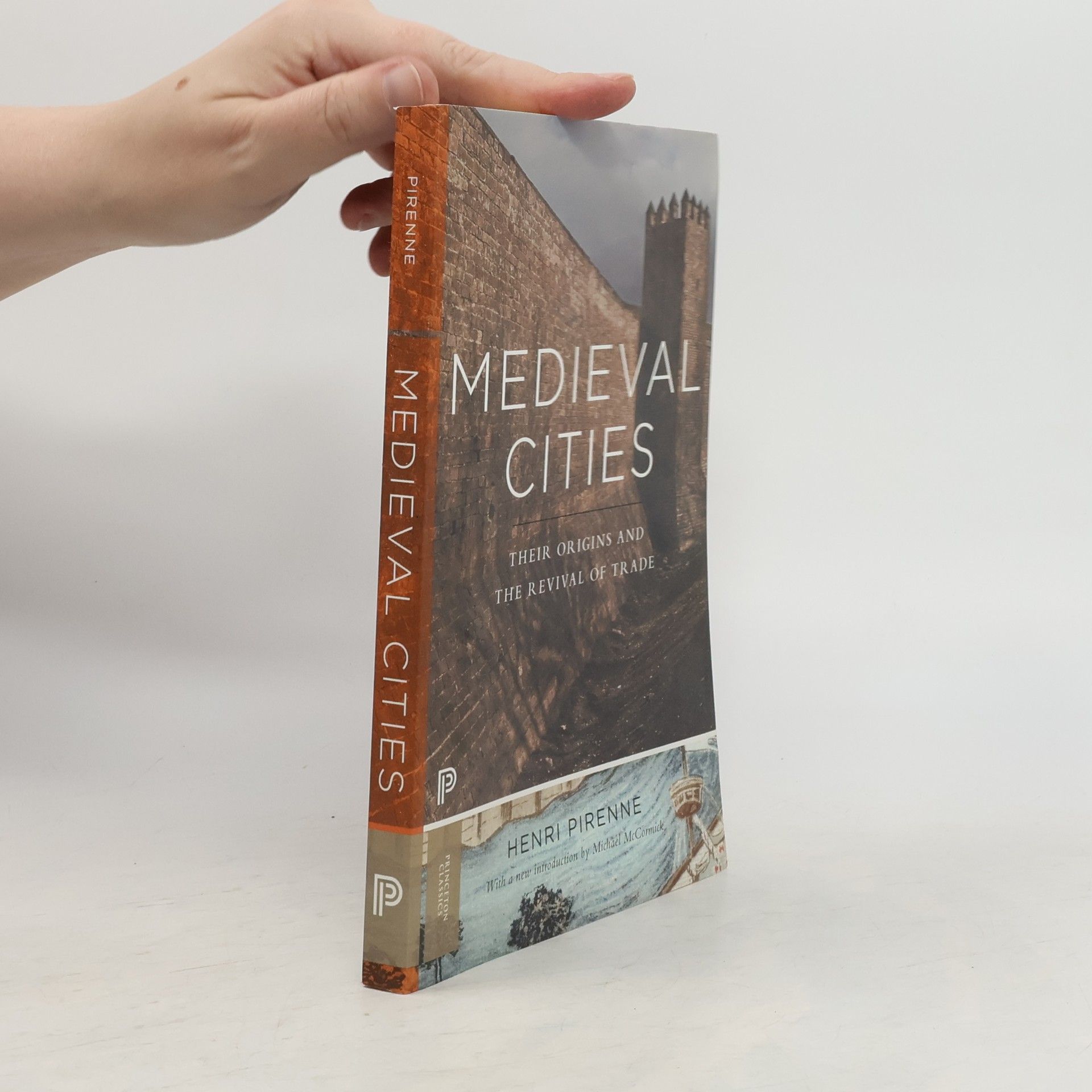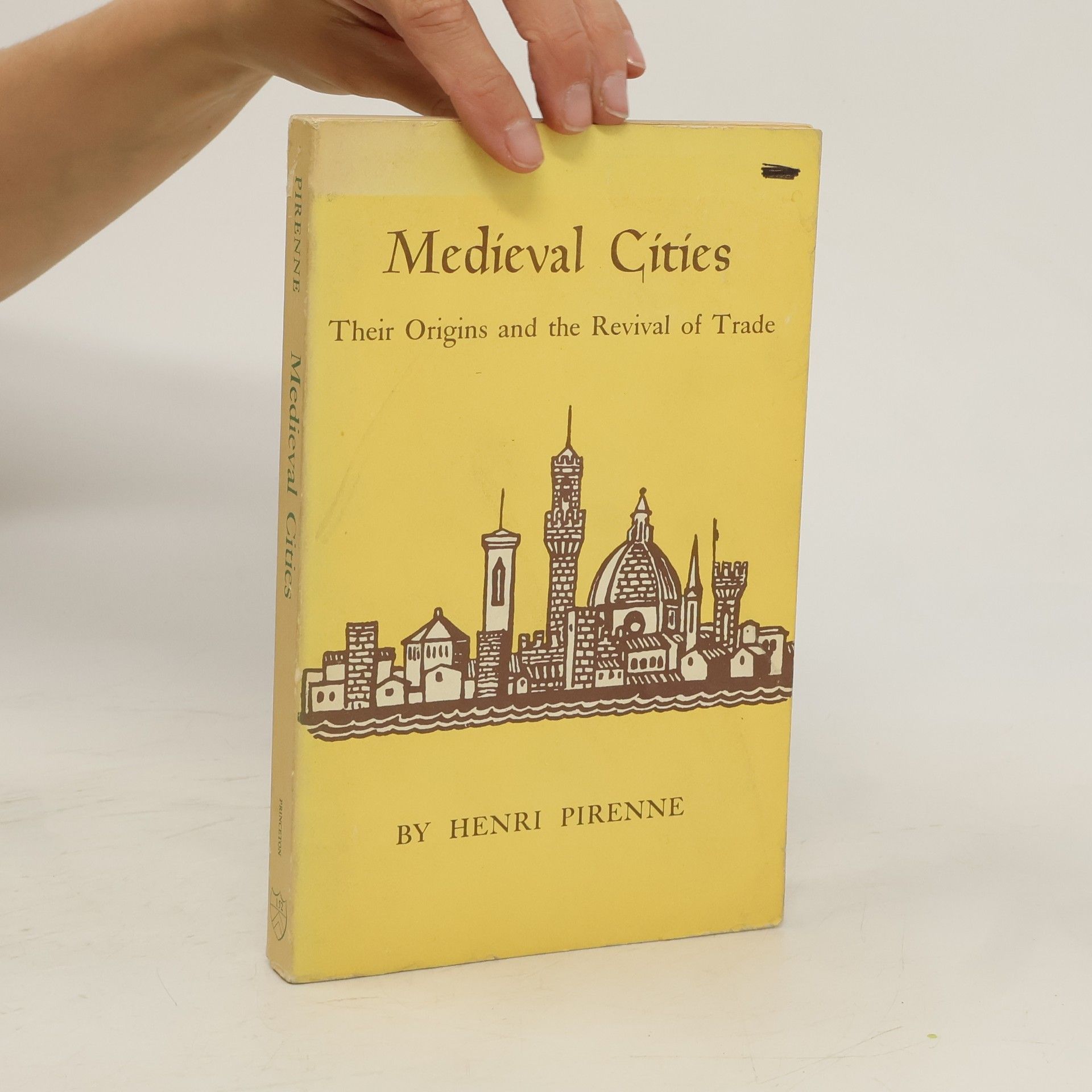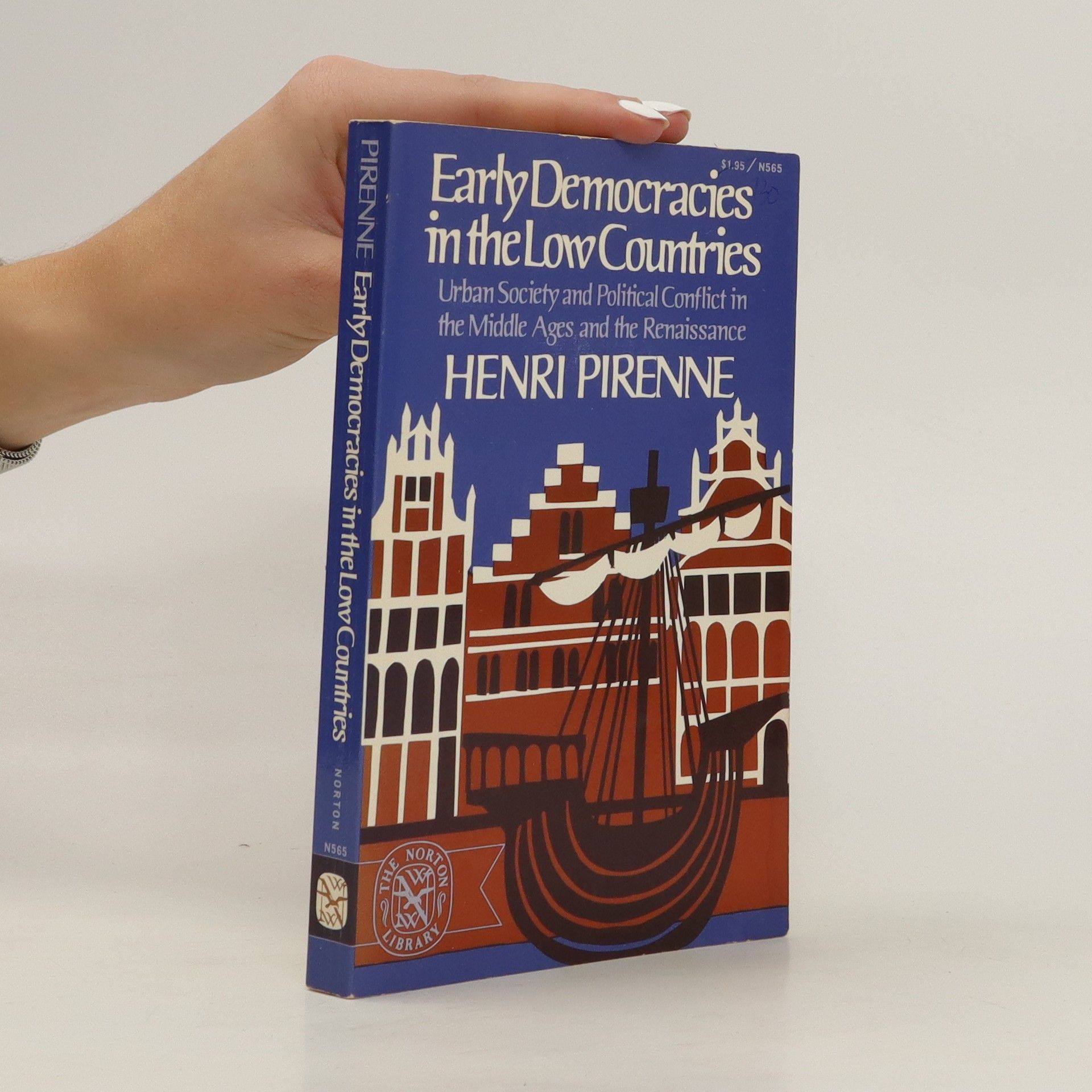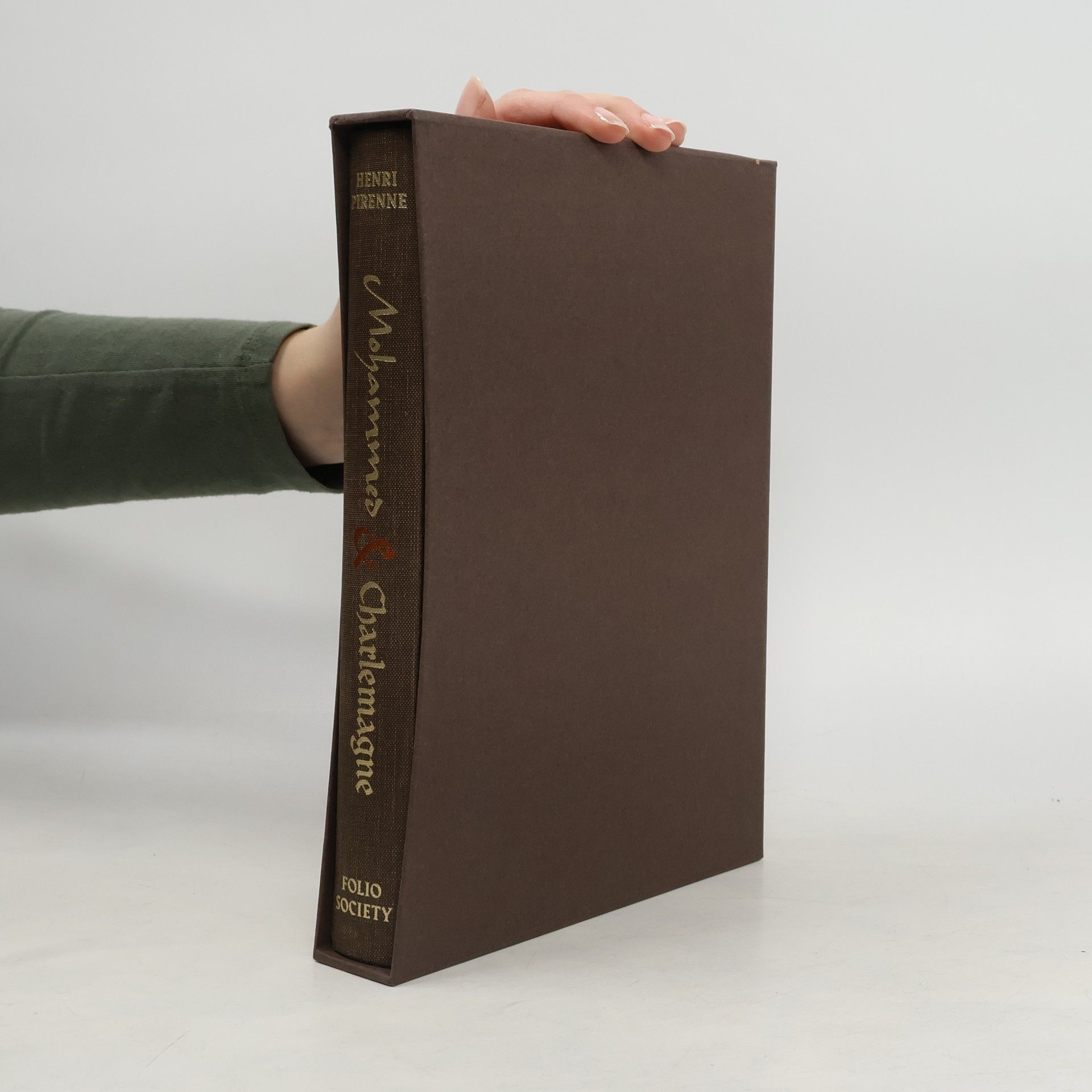Madrid. 18 cm. 167 p. Encuadernación en tapa blanda de editorial. Colección 'Biblioteca fundamental de nuestro tiempo ;', numero coleccion(25 : Sección Humanidades). Pirenne, Henri 1862-1935. Les villes du Moyen Âge. Traductor, Francisco Calvo. Ciudades medievales .. Este libro es de segunda mano y tiene o puede tener marcas y señales de su anterior propietario. ISBN: 84-206-9225-5
Henri Pirenne Libros
Henri Pirenne fue un destacado historiador belga cuya obra se centra en la Europa medieval y el desarrollo urbano. Su reconocida Tesis Pirenne explora los orígenes de la Edad Media y los cambios en el comercio. Pirenne también ofreció una perspectiva distintiva sobre la historia medieval de Bélgica y su evolución urbana. Su legado reside en sus profundas ideas sobre los cambios estructurales y el desarrollo económico de la sociedad medieval.







Mahoma y Carlomagno
- 248 páginas
- 9 horas de lectura
Henry Pirenne (1862-1935), concluyó la primera versión de Mahoma y Carlomagno pocos meses antes de su fallecimiento y Jacques Pirenne, hijo y discípulo del gran investigador que revolucionó los estudios medievales, asumió la tarea de preparar para su edición el manuscrito póstumo. El libro contiene las conclusiones definitivas sobre el conjunto de problemas que constituyó la «la gran pasión científica de los veinte últimos años de su vida» y que había orientado ya su anterior estudio sobre Las ciudades de la Edad Media. Las invasiones germánicas no pusieron fin a la unidad mediterránea del mundo antiguo ni aportaron principios nuevos en el orden económico y social, en la situación lingüística o en las instituciones que la cultura romana había transmitido. Sólo la expansión islámica, el convertir el Mediterráneo en un lago musulmán, desplazó hacia el norte el eje de la vida histórica y creó las condiciones para la separación entre el Oriente bizantino y Occidente y para la ruptura de la continuidad en el desarrollo de la civilización. La decadencia del reino merovingio, el ascenso de Carlomagno, la alianza del papado con la nueva dinastía y el predominio de la Iglesia y de los señores feudales marcan, entre el 650 y el 750, la transición hacia el perído de regresión económica y anarquía en el que la tradición antigua se pierde y que recibe el nombre de Edad Media.
Economic and Social History of Medieval Europe
- 256 páginas
- 9 horas de lectura
The book presents Henri Pirenne's influential theories on European history, particularly the Pirenne Thesis, which explores the origins of the Middle Ages through state formation and trade shifts. It also examines Belgium's medieval history and the evolution of medieval cities. Pirenne posited that significant social, economic, cultural, and religious changes stemmed from deeper causes, shaping the perspectives of later historians, including those of the French "Annales" School. Despite facing opposition, his ideas remain foundational in medieval studies.
A History of Europe (Routledge Revivals)
From the Invasions to the XVI Century
- 624 páginas
- 22 horas de lectura
Beginning with the invasions that marked the decline of the Roman Empire, this influential history covers Europe from the fifth century to the Renaissance and Reformation in the sixteenth century. Henri Pirenne's detailed and impartial narrative offers a comprehensive overview of the Middle Ages, making it an essential read for both students and general readers interested in this transformative period in European history. Its reissue is a timely addition for those seeking a definitive exploration of medieval Europe.
Medieval Cities
Their Origins and the Revival of Trade - Updated Edition
- 208 páginas
- 8 horas de lectura
Aunque el transcurso de los años haya modificado parcialmente algunas de sus conclusiones, las investigaciones de Henri Pirenne (1862-1935) sobre la Edad Media europea continúan siendo punto de referencia indispensable para los historiadores actuales. Pirenne demuestra en Las Ciudades de la Edad Media que fue la expansión musulmana -que cerró el Mediterráneo al tráfico durante el siglo viii-, y no las invasiones germánicas, lo que dislocó la unidad económica creada por el imperio romano, dando origen al periodo de decadencia mercantil que tan graves consecuencias tendría para la vida urbana. Después de tocar fondo a finales del siglo ix, las rutas comerciales fueron revitalizándose con nuevas corrientes de civilización que se condensaron en los núcleos urbanos supervivientes, marcando este renacimiento el comienzo de una nueva era: frente al clero y la nobleza, la burguesía inicia su ascenso, que culminará en la época contemporánea.
The book presents a comprehensive examination of capitalism's evolution through various social stages, highlighting its significance in human history. Alpha Editions has undertaken the effort to preserve this classic work by republishing it in a modern format, ensuring clarity and readability. The text has been reformatted and retyped, avoiding scanned copies, which enhances the reading experience for contemporary audiences. This edition aims to keep the insights of the original work accessible for both present and future generations.


